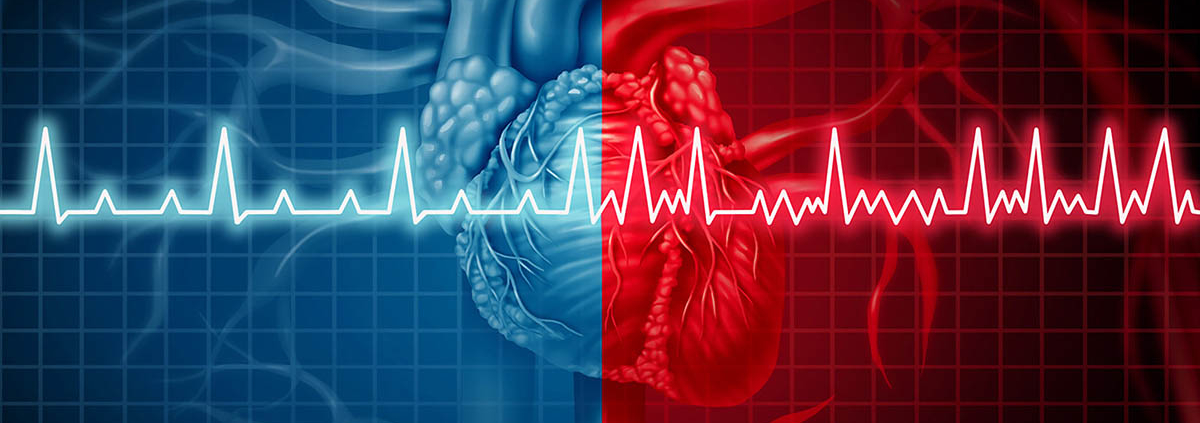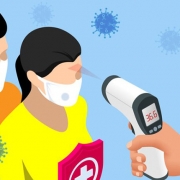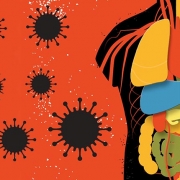Are COVID-19-Linked Arrhythmias Caused by Viral Damage to the Heart’s Pacemaker Cells?
SARS-CoV-2 Spike protein (green) staining in the pacemaker cells (red) of SARS-CoV-2 infected hamsters. The nuclei of the cells are stained blue. Image courtesy of Dr. Shuibing Chen.
The SARS-CoV-2 virus can infect specialized pacemaker cells that maintain the heart’s rhythmic beat, setting off a self-destruction process within the cells, according to a preclinical study co-led by researchers at Weill Cornell Medicine, NewYork-Presbyterian and NYU Grossman School of Medicine. The findings offer a possible explanation for the heart arrhythmias that are commonly observed in patients with SARS-CoV-2 infection.
In the study, reported in Circulation Research, the researchers used an animal model as well as human stem cell-derived pacemaker cells to show that SARS-CoV-2 can readily infect pacemaker cells and trigger a process called ferroptosis, in which the cells self-destruct but also produce reactive oxygen molecules that can impact nearby cells.
Arrhythmias including too-quick (tachycardia) and too-slow (bradycardia) heart rhythms have been noted among many COVID-19 patients, and multiple studies have linked these abnormal rhythms to worse COVID-19 outcomes. How SARS-CoV-2 infection could cause such arrhythmias has been unclear, though.
In the new study, the researchers, including co-senior author Dr. Benjamin tenOever of NYU Grossman School of Medicine, examined golden hamsters—one of the only lab animals that reliably develops COVID-19-like signs from SARS-CoV-2 infection—and found evidence that following nasal exposure the virus can infect the cells of the natural cardiac pacemaker unit, known as the sinoatrial node.
Release date: 01 April 2022
Source: Weill Cornell Medicine









